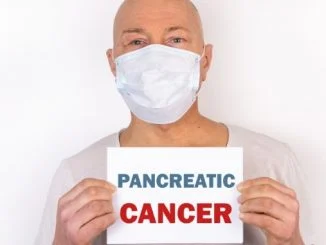
Immunotherapy can treat people with melanoma, kidney cancer, lung cancer, and other cancers as well as handling immune-related side effects.
Washington [US] –
Researchers at the Memorial Sloan Kettering Cancer Center (MSK) found that patients who received nivolumab after bladder cancer surgery reduced their overall risk for high-grade bladder cancer recurrence. This research was published in the journal New England Journal of Medicine.
In this phase III randomized study, Dr Bajorin and a team of investigators evaluated 709 patients who were at high risk for recurrence of urothelial cancer after removal of their bladder, ureter, or kidney for high-grade cancer.
To evaluate for benefit, patients were randomized to receive either nivolumab or a placebo every two weeks for one year. Patients and physicians were blinded to the treatment. Both safety and quality of life were evaluated.

Dr Bajorin and investigators found that in high-risk patients, nivolumab reduced recurrence after surgery compared to patients who received the placebo. The current standard of care following surgery that removes the bladder or kidney and ureter has been observed without adjuvant therapy- even in patients at high risk of recurrence and death.
This is because no chemotherapy or immunotherapy has previously been shown to be of benefit. Participants who received nivolumab had disease-free survival of 21 months compared with 10.9 months in people receiving the placebo.
“We are very encouraged by the data and the results of the study. Despite available therapies for advanced metastatic bladder cancer, new options are needed to improve long-term disease control and patient survival. These findings have the potential to change the standard of care for bladder cancer,” said Dr Bajorin, first and corresponding author of the study.
Urothelial cancers are tumours that start in the lining of the urine-collecting system that transports urine from the kidneys to the outside of our bodies. These cancers are often referred to as “bladder cancer” because most of them start in the bladder.

Dr Bajorin and colleagues concluded that the survival data is not yet mature and will need additional research and follow-up. The primary endpoints of disease-free survival in the study population and disease free-survival in the subset of patients with PD-L1-positive tumours were met, and these findings are highly statistically significant and clinically relevant for a population of patients with a clear unmet medical need.
“The trial demonstrates that novel therapies can be identified as having patient benefit when the studies are conducted in a very rigorous fashion. We are hoping this treatment will get approval for all patients at high risk of recurrence after the US Food and Drug Administration has done a detailed review of all the data,” said Dr Bajorin.
Cancer immunotherapy was born at MSK a little over a century ago. Since then, physician-scientists across MSK have led the effort to develop immune-based treatments for different types of cancer.
MSK has been at the epicentre of discoveries in the field, and the institution’s work is bringing exciting new treatment options to people around the world. MSK physicians have extensive experience using immunotherapy to treat people with melanoma, kidney cancer, lung cancer, and other cancers as well as handling immune-related side effects.
Without treatment, bladder cancer can be an aggressive disease. In 2021, it is estimated that there will be nearly 17,000 deaths due to bladder cancer in the United States- and numbers are expected to rise significantly in the next decade.
“As physicians, we consistently strive to provide our patients with the most effective therapies and give those with advanced disease more options,” said Dr Bajorin.


